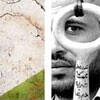
No Valentine break for Gaza flower producers
14 February 2008
RAFAH, Gaza Strip, 14 February (IPS) - After generations of occupation, Valentine’s Day has meant little in the Gaza Strip. But the flowers that lovers presented in Europe has. Majed Hadaeid, 43, knows that better than most, as he watches livestock make a meal of the flowers he had hoped to export to Europe. “I have 130 dunams [32 acres],” he says. “All carnations, in 30 different colors, and varieties yielding 16-17 million blossoms per year.” Read more about No Valentine break for Gaza flower producers








